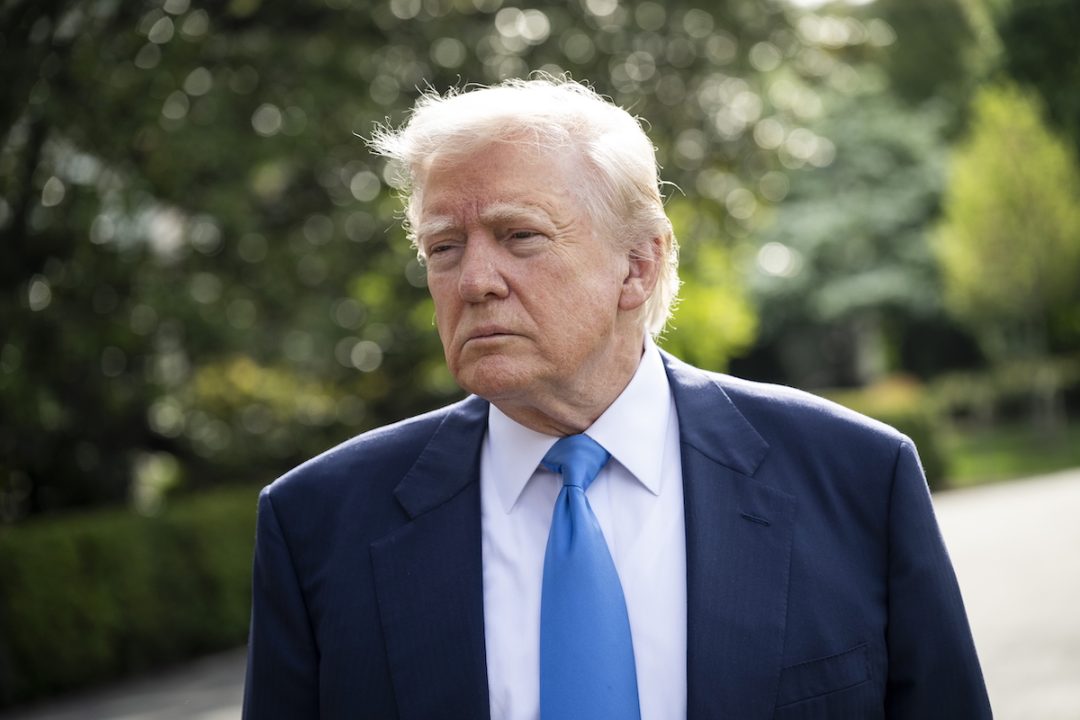
A federal judge in Washington, D.C., has dealt a setback to President Donald Trump’s sweeping executive order on elections. The order, issued March 25, aims to reshape national voter registration rules. But Judge Colleen Kollar-Kotelly called parts of it unconstitutional and halted their enforcement. She wrote in a 120-page opinion released Thursday:
Our Constitution entrusts Congress and the States — not the President — with the authority to regulate federal elections.
The decision pauses two key sections of the order. One mandates documentary proof of U.S. citizenship to register using the federal voter form. The other compels agencies distributing registration forms to verify citizenship first — directly contradicting federal law.
Kollar-Kotelly warned the executive order would inflict “irreparable harm” on voter registration efforts and noted that the government offered “almost no defense of the President’s order on the merits.”
Circumventing Congress
Trump’s order tried to force changes that mirror the SAVE Act, a Republican-backed bill recently passed by the House. That bill, still pending in the Senate, would require proof of citizenship to register to vote.
But Trump didn’t wait for Congress.
Kollar-Kotelly, appointed to the federal bench by President Bill Clinton after earlier serving as a Reagan appointee to the D.C. Superior Court, disagreed with this, writing:
No statutory delegation of authority to the Executive Branch permits the President to short-circuit Congress’s deliberative process by executive order.
As one of the arguments against the presidential order, the judge quoted the Framers, saying that “Congress has supervisory authority over [election] regulations. The President does not feature at all.”
She continued with a quote from The Federalist, No. 59:
In fact, Executive regulatory authority over federal elections does not appear to have crossed the Framers’ minds:
[T]here were only three ways in which this power could have been reasonably modified and disposed: that it must either have been lodged wholly in the national legislature, or wholly in the State legislatures, or primarily in the latter and ultimately in the former.
While recognizing the president’s right to express his policy preferences, Kollar-Kotelly noted that he is permitted to advocate for what Congress, the EAC, or other federal agencies should consider or adopt. She then maintained,
But in this case, the President has done much more than state his views: He has issued an “Order” directing that an independent commission “shall” act to “require” changes to an important document, the contents of which Congress has tightly regulated.
The EAC: a Shield or a Tool?
Trump’s order instructed the Election Assistance Commission (EAC) to rewrite the federal voter registration form to require proof of citizenship. But the agency, by law, must operate independently and with bipartisan consensus.
It cannot act without three of its four commissioners agreeing. Any changes must go through public notice, hearings, and comply with the Administrative Procedure Act (APA) and the Paperwork Reduction Act (PRA). Even if the EAC wanted to follow Trump’s order, it legally couldn’t.
As Judge Kollar-Kotelly put it,
The President lacks the authority to direct the outcome of the rulemaking process that Congress has assigned to the EAC.
Congress deliberately shielded election regulation from executive control. Under both the National Voter Registration Act (NVRA) and the Help America Vote Act (HAVA), the power to modify the Federal Form was delegated to bipartisan, independent panels — first the Federal Election Commission (FEC), and later the EAC, argued the judge. She wrote,
The text, structure, and context of the NVRA and HAVA show that Congress would not have delegated its Elections Clause authority to regulate the content of the Federal Form to the EAC if that authority could be exercised unilaterally by the President.
Allowing the president to dictate changes would, she warned, make “Congress’s careful structural choices” meaningless.
Kollar-Kotelly concluded,
No statute expressly or impliedly grants the President authority to require documentary proof of citizenship on the Federal Form. Nor does any provision of the Constitution vest the President with that authority.
The court found the plaintiffs had shown a “substantial likelihood of success” in proving Section 2(a) of Trump’s executive order violates the separation of powers.
Other Challenged Provisions
While the judge paused parts of Trump’s executive order, she left other controversial sections intact — for now.
One of those sections would prevent states from counting mail ballots received after Election Day, even if postmarked on time. Currently, 18 states and several territories allow such ballots under their own laws. Trump’s order threatens to override those state rules without congressional approval.
Democratic plaintiffs asked the court to block this provision too. But Kollar-Kotelly said those claims were premature or must be brought directly by affected states.
She also declined to block the order’s authorization for federal agencies — working alongside the Department of Government Efficiency (DOGE) — to share federal data and review state voter rolls for citizenship verification. Critics argue this provision could expand centralized oversight of state elections and beyond, potentially violating the Privacy Act and the APA.
Trump Defiant, Critics Alarmed
The White House responded swiftly to Thursday’s ruling. Spokesperson Harrison Fields issued the statement to the press,
President Trump will keep fighting for election integrity, despite Democrat objections that reveal their disdain for commonsense safeguards like verifying citizenship.
He added that the administration is “confident in securing an ultimate victory in the courtroom.”
The plaintiffs, however, view the executive order as a threat to the separation of powers, calling it a “blatant overreach” that “weaponizes” the EAC.
In a joint statement following the ruling, the voting rights groups stressed that voters already affirm citizenship under penalty of perjury on the federal form, and that “millions” of Americans lack easy access to passports or other documentary proof of their citizenship.
Broader Legal Landscape
Thursday’s ruling is not the end of the story. Other parts of Trump’s executive order are still under review.
A separate lawsuit filed by 19 Democratic attorneys general is moving forward in federal court in Massachusetts. The Trump administration has asked to transfer that case to Washington, D.C., where it could be consolidated with the ongoing proceedings before Judge Kollar-Kotelly.
Meanwhile, the states of Washington and Oregon, which rely heavily on vote-by-mail, have launched their own legal challenges.
The common thread across these lawsuits is clear. They accuse Trump of trying to impose sweeping national changes by executive decree, bypassing Congress and trampling constitutional protections.





